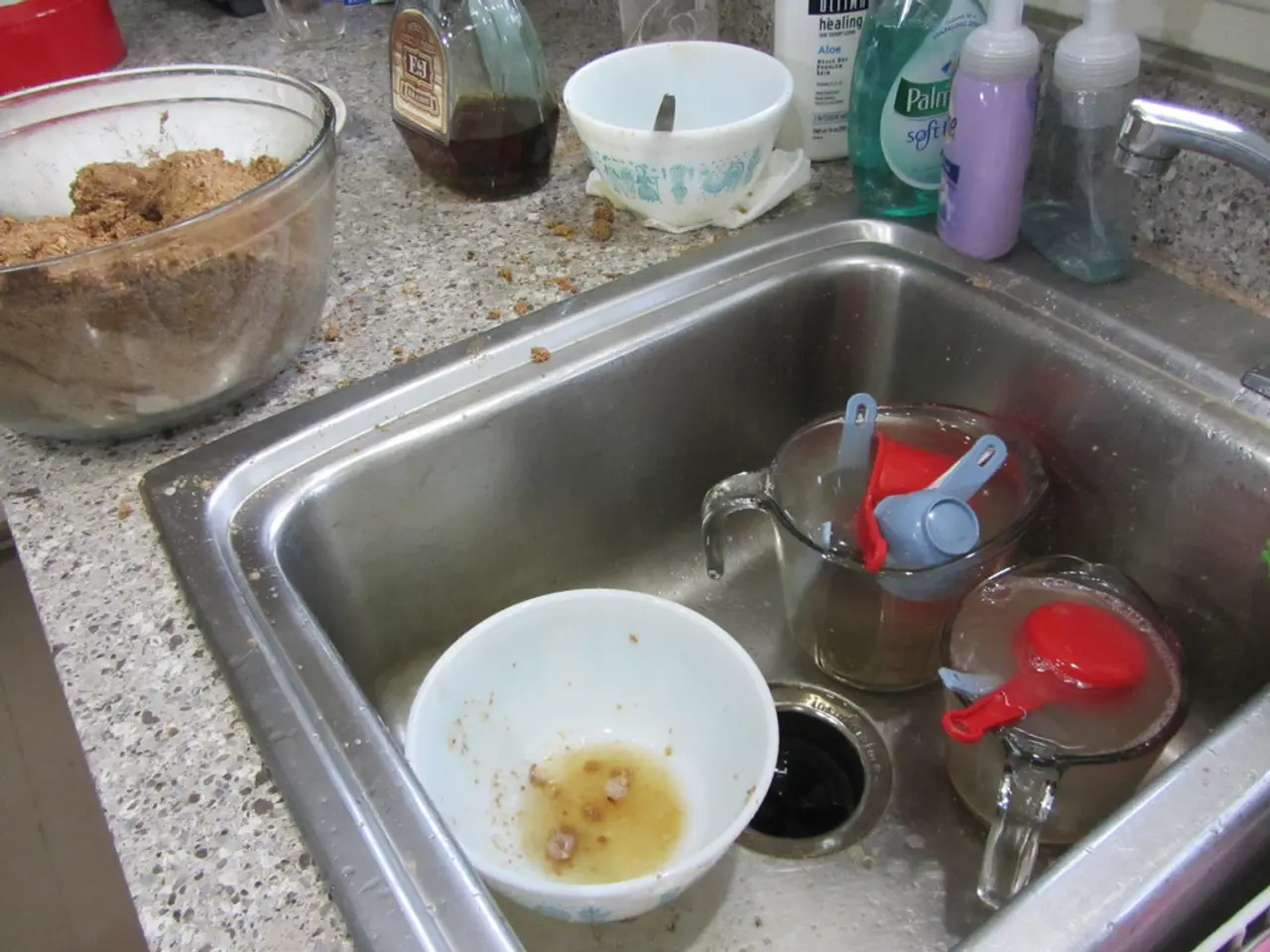Enhancing Gut Microbiota via Prebiotics Found in Coconuts
Coconut, a tropical staple, is more than just a tasty refreshment. Recent research has revealed that this versatile fruit is a rich source of prebiotics and probiotics, offering numerous benefits for gut health.
Seven strains of Lactic Acid Bacteria (LAB) have been isolated from coconut water, some of which can withstand extreme temperatures and possess antimicrobial activity against common pathogens. This finding suggests that consuming coconut water could potentially help alleviate the effects of certain pathogens in humans.
Prebiotics, enriched in fibre, resistant starches, pectin, inulin, and other nutrients, are a key component of coconut. Gut bacteria break down these prebiotics, producing fatty acids as fuel. Coconut meal, for instance, contains about 61% indigestible polysaccharides, 42% of which is mannose and 58% glucose.
These prebiotics serve as a food source for beneficial probiotic microorganisms, aiding in their growth and promoting a healthy gut microbiome. Coconut sugar, in particular, contains prebiotic fibers like inulin that help stimulate beneficial bacteria growth in the gut, thereby supporting a healthy microbiome crucial for digestion and immune function.
Coconut flour may also contain probiotics that aid in digestion, reduce inflammation, and boost the immune system. Products incorporating coconut as a probiotic ingredient, such as bone broth concentrates with bio-fermented coconut, further support gut health by balancing good and bad bacteria, promoting digestion, and strengthening immunity.
While the probiotic diversity in coconut-based probiotic foods like coconut yogurt may be lower compared to some other sources, coconut-derived prebiotics remain a useful component for gut microbiome support. Coconut water and coconut milk are additional sources of these beneficial prebiotics.
Coconut mannan, a carbohydrate in coconut, binds to pathogenic bacteria in the GIT and flushes them out, promoting the growth of friendly microbes. This process contributes to maintaining colon health, metabolism, and overall human health.
Gut bacteria, numbering over 100 trillion, play a significant role in our health. They produce Vitamins such as Vitamin B, K, butyrate, acetic acid, lactic acid, among others. Investigation shows gut bacteria can have a profound effect on brain development and mood.
Dried coconut kernel, approximately 20% carbohydrates, 60% fats, 9% proteins, 8% natural sugars, and 7% moisture, is another source of these beneficial prebiotics. Prebiotics provide energy to cells in the colon, aid in inflammation, mucous production, and immune health.
In summary, the consumption of coconut in forms containing prebiotic fibers like inulin can enhance gut health by fostering beneficial bacteria, improving digestion, and supporting the immune system through microbiome balance.
- The findings from recent scientific research reveal that consuming coconut water could potentially aid in alleviating the effects of certain pathogens in humans, particularly due to the presence of probiotics and their antimicrobial properties.
- Apart from promoting gut health, coconut sugar contains prebiotic fibers like inulin, which help stimulate the growth of beneficial bacteria in the gut, supporting a healthy microbiome essential for digestion and immune function.
- The versatile fruit, coconut, is also a rich source of prebiotics, such as mannose and glucose, that serve as food for beneficial probiotic microorganisms, contributing to a healthy gut microbiome vital for overall human health.




